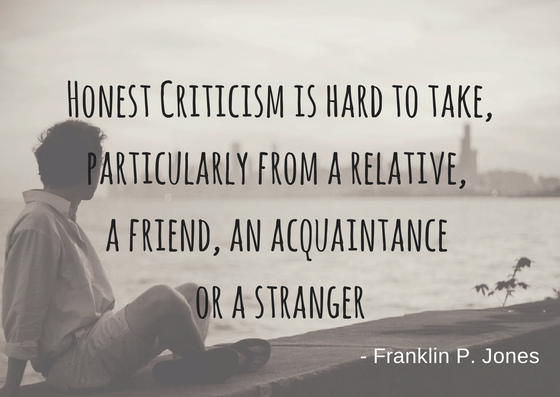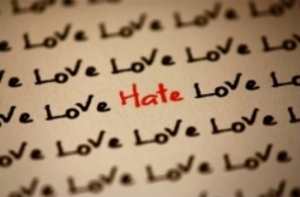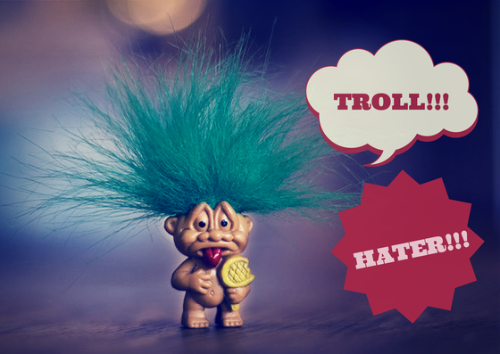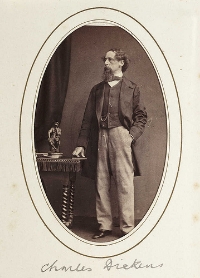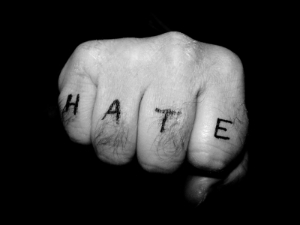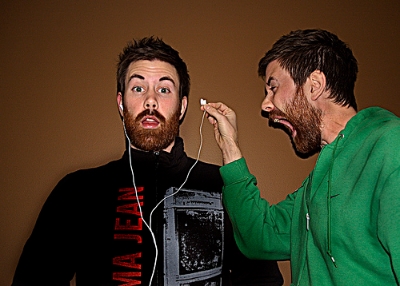Putting your writing on the internet for everyone to see, comment on and criticize isn’t an easy thing to do. It takes courage to face an audience and say: “Here it is. Here are my words. Here are my thoughts”.
We’re all afraid of being judged, and it’s really hard to hear that your writing isn’t up to scratch.
But even though we all know negative criticisms aren’t exactly fun, we have to remember that they are a huge part of the learning process.
Criticism as a Learning Process
Most of us have memories of being on the receiving end of negative criticism at some point in our lives, and I’m sure we can also remember how those criticisms sometimes actually worked to make us better people.
For me, I remember a hard lesson that I had to learn in University was when a lecturer (who was Italian and had a really strong accent) handed me a book entitled “English for Beginners”.
I dismissed it initially.
English wasn’t even his native language! He clearly had no idea what he was talking about.
But then I had a look at my paper and realized what he was trying to say:
- My syntax was messy and confusing.
- My sentences were too long.
- I was messing up some homophones (mainly “then and “than”).
So even though I was initially taken back by this lecturers’ seemingly ridiculous criticism, he was actually completely justified.
I shorted my sentences, I became more careful with my syntax and I actually figured out what the difference between “then” and “than” was.
My writing drastically improved. As did my grades.
But University isn’t the same as the internet.
I listened to that lecturer because I knew that the person criticizing me was an authority on the subject matter.
On the internet, we don’t have those same assurances.
We don’t always know if someone is an authority on a subject or not.
Meaning that constructive criticism as a way to better ourselves isn’t really happening as much on the internet.
Which is eventually going to seriously affect the quality we receive from our content writers/bloggers/internet wordsmiths.
The Facts About Negative Criticism
But the fact of the matter is: We have a natural tendency to run away and hide from negative criticism.
According to Roy Baumeister and his team of researchers at Florida State University, in a research paper entitled “Bad Is Stronger Than Good”, we remember negative emotions much more strongly and in much more detail than we do positive emotions or praise.
And, before you think this only applies to people who are more insecure, the results were the same for both happy and sad people.
In fact, Baumeister and his team of researchers discovered that your brain needs about five positive events to happen to make up for one negative event.
That’s a big deal.
And probably why we’re so quick to dub negative criticism as “trolling” or “hating”.
The Dangers of Labeling Negative Criticism as “Trolls” and/or “Haters”
We throw the words “hater” and “troll” around a lot. But are we really thinking about what we’re saying and what impact that could have on others?
To highlight my point, let me tell you about the incident that inspired this post:
While doing some research for another blog post, I came across a title that was exactly what I was looking for, so I happily started reading.
The only thing was, I couldn’t get past the first paragraph.
It was really badly written.
The grammar, syntax, format, tone – everything was off.
Thinking I would try to leave some constructive criticism for the writer, I scrolled down to the comments section where I found someone else had left the same criticism:
The topic was interesting but unfortunately there were aspects to the writing that had let it down.
Then I noticed that people had replied to this reader’s constructive criticism, so I decided to have a look at what they had said.
It appears, that other readers had come to the author’s defense (before the author even had the opportunity to respond). The arguments were as follows:
- The reader was just a “grammar Nazi”. (I hate this term. Stop it. Now.)
- The reader was a snob who just didn’t like that the writer was using colloquial (conversational) language.
- The reader needs to get over it and try to read it anyways, because the article did have interesting things to say.
- The reader was just trolling.
First: Bad grammar isn’t necessarily the death of an article, so there was obviously something else going on that stopped them from continuing to read.
Second: A lot of good writers write in colloquial language. Charles Dickens sure did. Again, this isn’t necessarily going to stop someone from reading an article.
Third: With thousands of articles being thrown at us daily, why should the reader force themselves to read badly written ones when they have so much other articles to choose from?
Fourth: The reader didn’t use any language that could be considered controversial. They were the first to comment, so we can’t say that they were purposefully commenting to the contrary of what everyone else was saying. They weren’t abusive, mocking or obnoxious.
They were just offering some criticism.
The Author’s Response
For me, it was clear that the reactions of the readers were reflective of a community that is so sick of trolling on blogs that they’ve put up a defense mechanism that is designed to shield people from pointless negativity.
But I was curious to see if the author see through that, so I continued to search down the replies to the original comment.
When I finally found the author’s name, I saw that he had thanked the readers for their support and for reading the blog.
He just ignored the criticism in the original comment.
He ignored the completely legitimately constructive criticism that would have drastically helped him improve his writing.
That suddenly got me thinking: What if we’re beginning to cast all the negative criticism that we receive on our blogs in the same “trollish” light? What if, to avoid the unpleasantness that comes with the territory that is online writing, we’re deflecting it by labeling it “trolling” or “hating”?
Trolls – The Definition
To figure out when to pay attention to the negative criticism, and when to ignore it, we need to figure out exactly who’s genuine and who’s not.
A lot of people conjure up images of some mischievous, ugly, green creature hiding under a bridge when they hear the term “troll”. We then imagine that on the other end of the internet (the bridge) there’s a troll waiting to jump out to scare us and cause us misery.
But there’s another definition of the term “troll” and that’s “to fish with a hook and line that you pull through water”.
This is more closely tied to what trolls are actually trying to do.
They “troll” the internet with their deliberately controversial, contrary and offensive comments in the hopes of getting an angry reaction from people.
The Trouble With Spotting Genuine Trolls
Unfortunately, trolls are sometimes really hard to spot.
Trolling is contrary to popular opinion, making it a step outside of the norm.
Sometimes a troll’s comments offer such a unique perspective on a topic that usually they can actually seem like legitimate opinions, making it extremely difficult to figure out if the person is being genuine or not.
Sufficiently advanced trolling is indistinguishable from thought leadership
But the fact that trolling can actually appear as an extremely valid and unique perspective on a topic only makes us more defensive.
It makes us feel even more inferior and dumb; even more angry; even more inclined to assume all similar criticism is trolling too.
Haters – The Definition
If you’re not condemned to being a troll for negative criticism, the other option is being labelled a “hater”.
Haters don’t offer criticism, just negativity and it’s often unfounded.
Personal attacks, such as “you’re a waste of space” or “you’re obviously uneducated” for example, could be construed as someone being a “hater”.
What Negative Criticism You Should Ignore (or at least, not take too seriously)
Trolls:
If you want to figure out if a comment is trolling or real constructive criticism: Keep Calm.
The entire internet is telling you to ignore trolls. To not feed them. To avoid giving them what they want (your anger).
But not everyone is a troll.
If you want to figure out if the person is being genuine or is just trolling, start by questioning them politely and calmly.
A troll won’t be satisfied unless you appear annoyed or angry, so their response (if you get any at all) will be just as provocative as their initial comment.
On the other hand, someone who is giving you genuine criticism will engage with you without being abusive, might offer advice or might elaborate on their point. All very useful and constructive stuff!
Haters:
Haters are easier to spot.
They’re just personally attacking you or your work, and they usually won’t be able to specify what about you or your piece that they don’t like.
For example: “the writer of this piece of garbage clearly has too much time, and too little education”.
For me, this type of comment is just a personal attack with nothing of value. Ignore it or apologize to the reader politely – Just don’t reply angrily.
What Negative Criticism You Should Listen To
Listen to comments that clearly point out something about your blog and/or that could do with improvement.
Specifics are constructive. Even if it does hurt to hear it sometimes, it will make you a better writer in the end.
What tips and advice do you have for dealing with negative comments on your blog? Please share!
